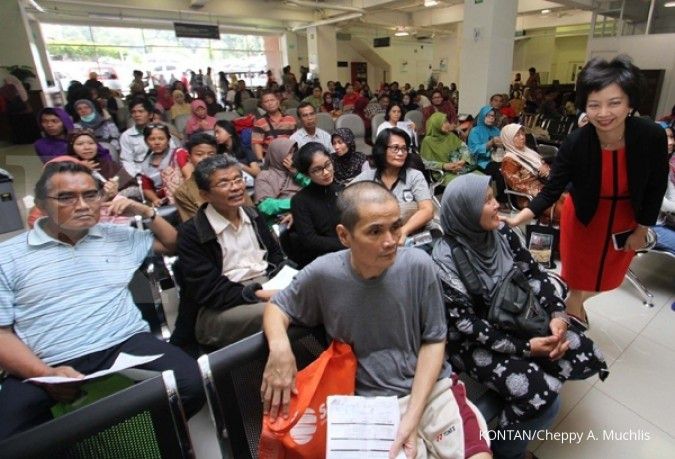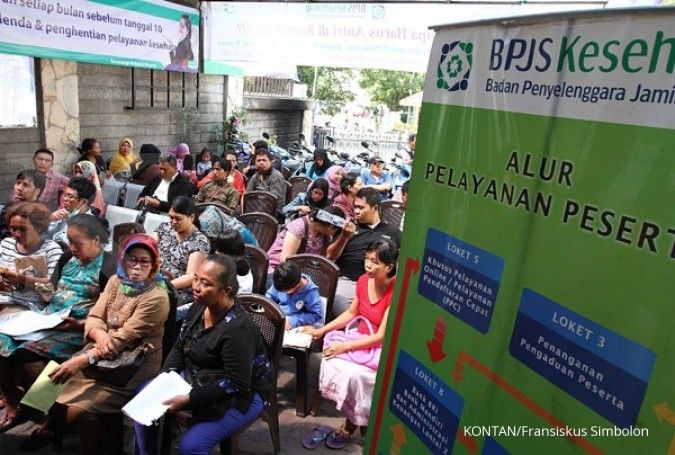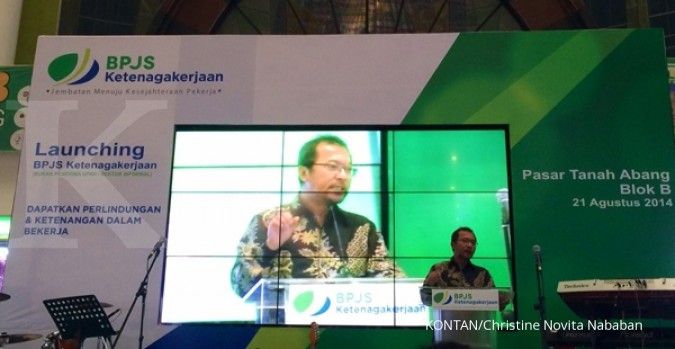JAKARTA. Employers are demanding an extension to a requirement to implement the new universal health care system by the start of next year, as health care infrastructure remains poor in the country, especially when compared with existing benefits being enjoyed by employees.
Existing regulations require most employers (state-owned, big, medium, small enterprises) to enroll their employees on Jan. 1, 2015, at the latest, at a time when the national health insurance (JKN) program is still receiving plenty of criticism, from long queues to the availability of health centers and doctors across the archipelago.
Indonesian Employers Association (Apindo) deputy chairman Hariyadi Sukamdani said the business lobby group had demanded that implementation of the JKN program be delayed by two years to Jan. 1, 2017, to allow time for the nation’s health-care system to be perfected.
“Our hospitals, doctors are still not ready. Employees are getting angry […] We will discuss with the BPJS [Kesehatan, Healthcare and Social Security Agency] whether or not it is necessary to delay [the implementation], but not for too long, maybe one year, until the issues have been resolved,” Apindo chairman Sofjan Wanandi said.
High payment rates — 5 percent of salaries — but a lack of hospital services and quality medicine are among the main issues to be addressed by BPJS Kesehatan, according to the Social Security Action Committee (KAJS) and Confederation of Indonesian Workers Unions (KSPI). Over 131 million people are entitled to BPJS Kesehatan benefits, with 9,778 Puskesmas (community health centers), 3,000 clinics and 3,786 individual doctors, according to data from BPJS Kesehatan’s website updated on Nov. 21.
“People could be waiting for three day s to be served, while previously it was easy for [workers with private or company benefits] to get medical services,” Sofjan said.
Indonesian Footwear Industry Association (Aprisindo) secretary-general Binsar Marpaung said companies still needed time to find a solution to avoid paying double premiums — for BPJS Kesehatan and a complimentary, better quality health care insurance or benefits system — and see rising costs.
“This remains a problem because a lot of companies currently have a reimbursement system or a [special budget] for a health care benefits system, for instance two to three times employees’ salaries per year. A lot of employees are comfortable with the existing system,” said Binsar, whose association has more than 300 companies with over 700,000 employees.
Indonesian Chamber of Commerce and Industry (Kadin) deputy chairman for employment Benny Sutrisno said that some companies would be forced to impose double premiums to maintain their employees’ welfare and the quality of their health care benefits. “Questions also remain unanswered for companies that own clinics — whether the clinics could be turned into a [BPJS Kesehatan] Puskesmas. This needs more [time] for dissemination,” he added.
Unilever Indonesia corporate secretary Sancoyo Antarikso said he still hoped that BPJS Kesehatan could better its services and that health care infrastructure in the country could be improved. This would reduce the extra costs companies would bear if they were willing to pay more to maintain the quality of their employees’ benefits. (Linda Yulisman, Raras Cahyafitri and Esther Samboh)
/2014/09/25/384603340p.jpg)














